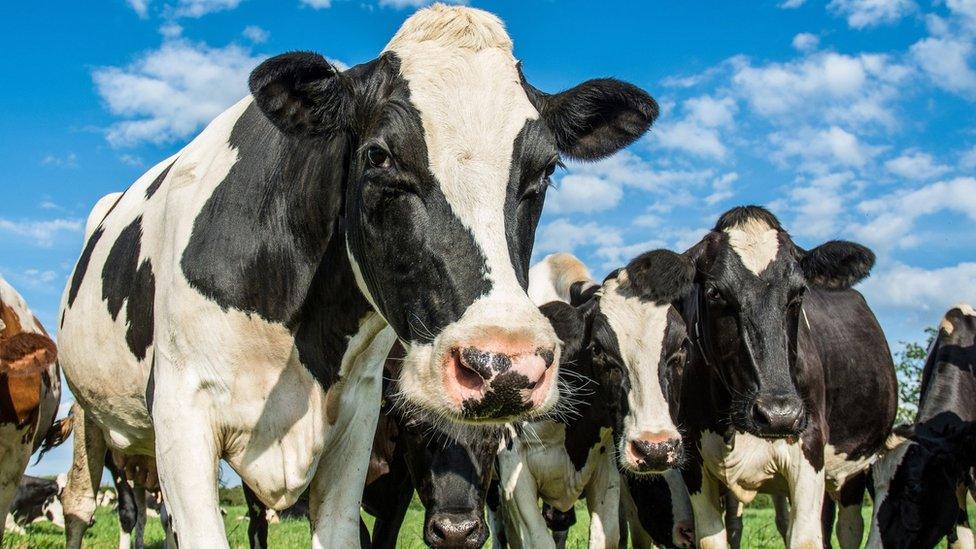Somerset Dairy Show: Can you raise a low-carbon cow?
- Published
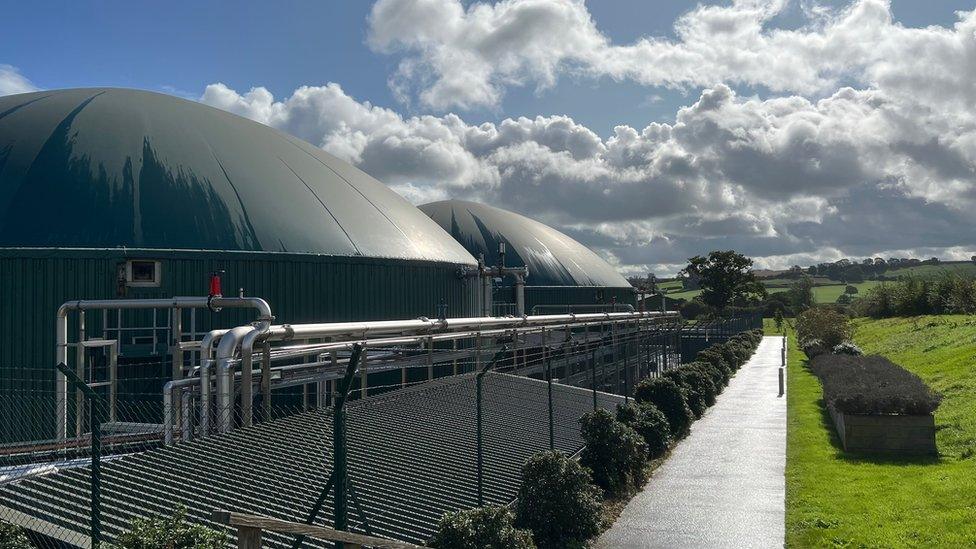
Huge digester tanks turn cow muck into biogas on a Somerset dairy farm
Is it possible to raise a low-carbon cow?
Making milk and cheese accounts for about 3.4% of global greenhouse gases, which cause climate change. So is it possible to raise a low-carbon cow? BBC West Business Correspondent Dave Harvey speaks to farmers at an industry showcase.
In the heart of sleepy Somerset, just a few miles away from where world-famous musicians rocked the Pyramid Stage earlier this year, farmers are discussing cheese.
The Dairy Show has been taking place for more than 40 years, but its visitors are now thinking about the future.
The theme of this year's event was carbon, with experts holding workshops to teach farmers how to cut carbon out of dairy production.
David Cotton, one of the show's organisers, said: "We are seeing reductions of 50% as farmers adopt better practices."
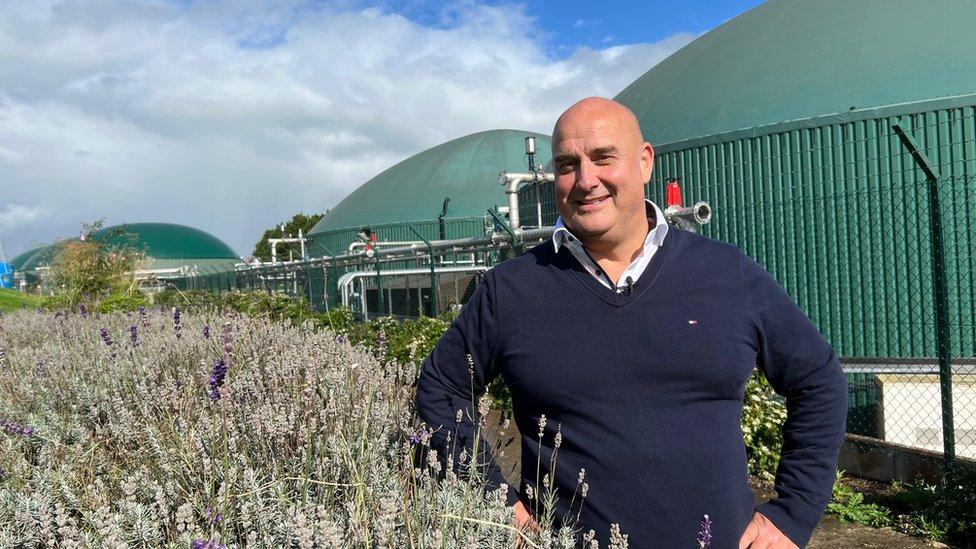
"It's the ultimate in recycling," says Richard Clothier about his bio-gas plant
Richard Clothier is the sixth generation of his family to farm cattle at Wyke Champflower, near Bruton in Somerset.
He said his family had always cared for their land and surroundings, but environmental farming had since moved on.
"We now measure the carbon emissions at every part of the farming and cheese-making process," he explained.
"Looking after the environment is no longer optional, it's a key part of the business," he added.
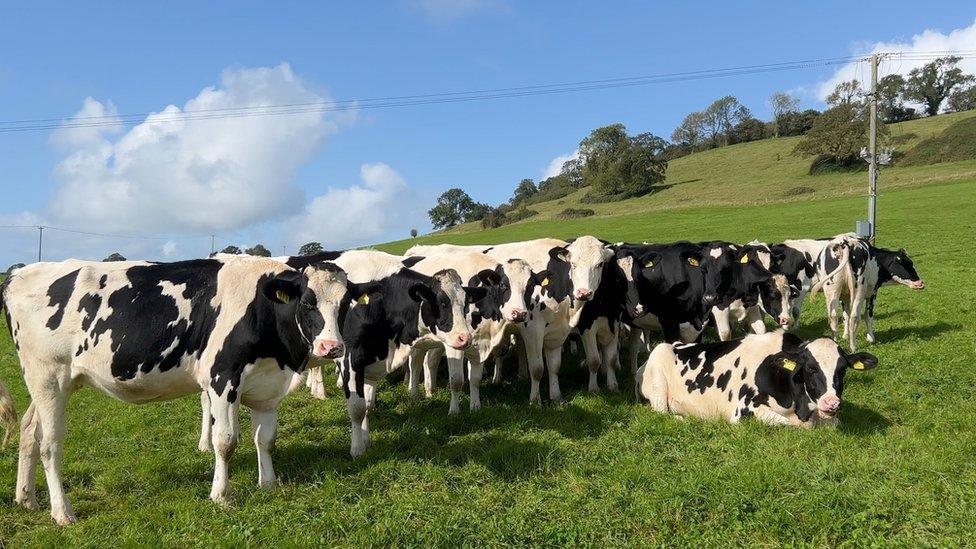
This Somerset dairy farm is trying to go carbon-neutral
The heart of the operation is a huge slurry pit, which Mr Clothier calls Wyke Farm's "crude oil".
This muck is fed into giant green domes, full of methanogenic bacteria which break it down, and produce methane.
The gas is then captured and cleaned, and some is used to heat the milk in the dairy, more to heat buildings on the farm.
Still more is sold back to the national grid.
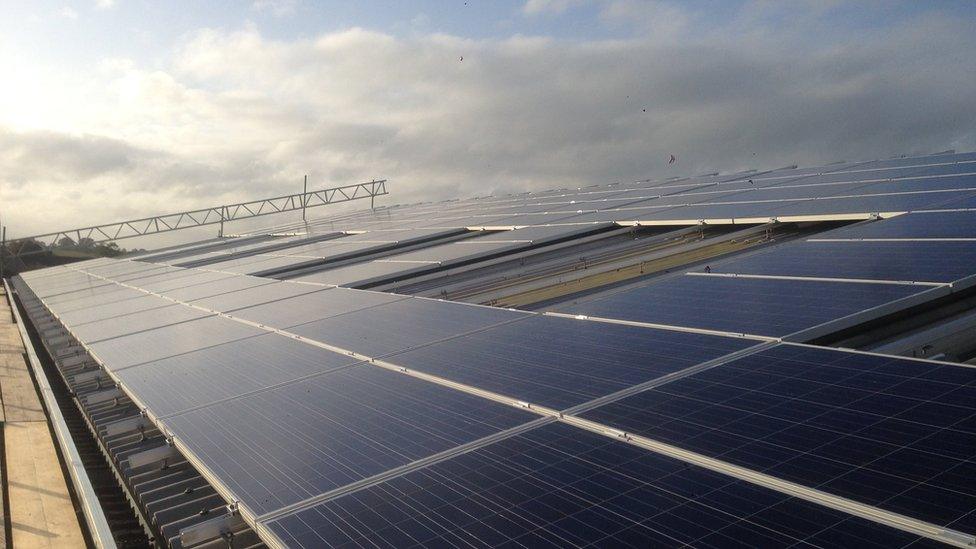
Solar panels at Wyke farm help power their dairy operation
And while Mr Clothier's farm may be unusual, you can find similar work on many dairy farms in the south-west of England.
As costs have risen for fertiliser and animal feed, cutting down on them has saved money but also cut carbon emissions, explained Becky Wilson from consultancy firm Farm Carbon Toolkit.
"Farmers are part of the solution.
"They have the ability to take carbon out of the atmosphere, and store it on our farms," she said.
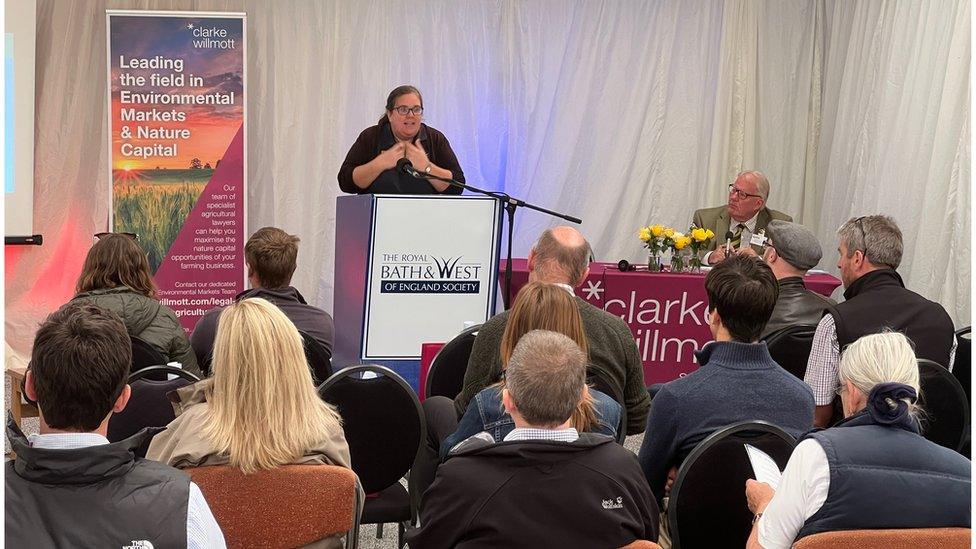
Becky Wilson, from Farm Carbon Toolkit, urged farmers to cut their carbon emissions
Her seminar at the Dairy Show was packed with farmers keen to hear how they can save money and achieve a lower carbon footprint.
And validating that lower footprint independently is vital, as many customers put a price on low-carbon products.
Wyke Farms cheese sells well in the United States, partly because it has less than half the carbon cost-per-kilo of typical US cheese.
David Cotton, one of the organisers of the Dairy Show, said UK dairy farmers had a much better carbon story to tell.
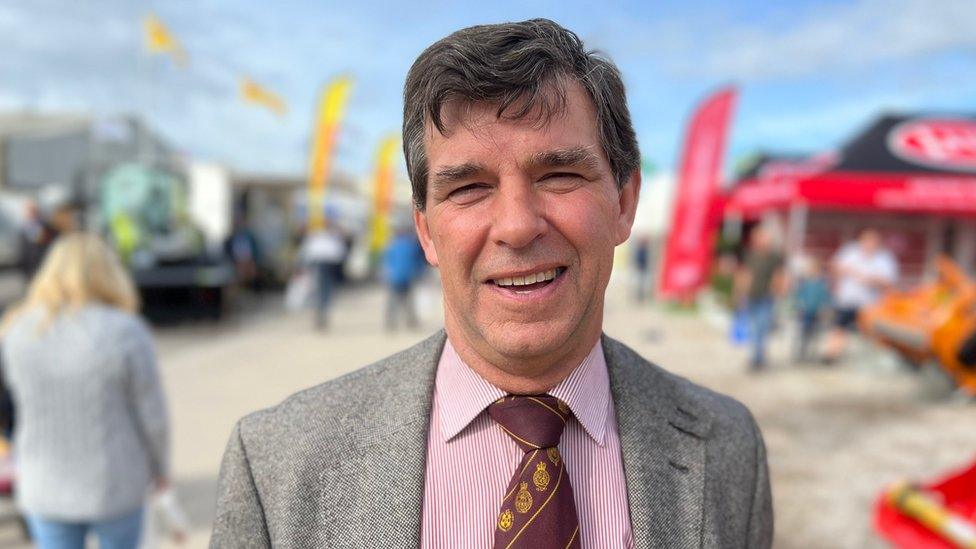
David Cotton, from the Royal Bath & West Society, said farmers were keen to hear about carbon reduction
"British milk and cheese produces about half the carbon of the global dairy industry," he explained.
"Most cows here are grazing grass. Drinking rainwater.
"The muck goes round in a cycle. Compare that to an American feed-lot, where the feed and water is brought in, and the muck taken away, it's not surprising we make less carbon."
UK government statistics bear out his claim. A litre of British milk creates 1.25 kg (2.7lb) of carbon, compared with a global average of 2.9 kg.
But dairy farmers know thousands of people are switching away from cows' milk to alternatives made from oats and soya, because they produce even lower carbon emissions.
As Mr Clothier explained on his farm, getting milk out of cows without emitting large amounts of carbon is now a vital business challenge, as well as an environmental one.

Follow BBC West on Facebook, external, X, external and Instagram, external. Send your story ideas to: bristol@bbc.co.uk , external
Related topics
- Published8 June 2023
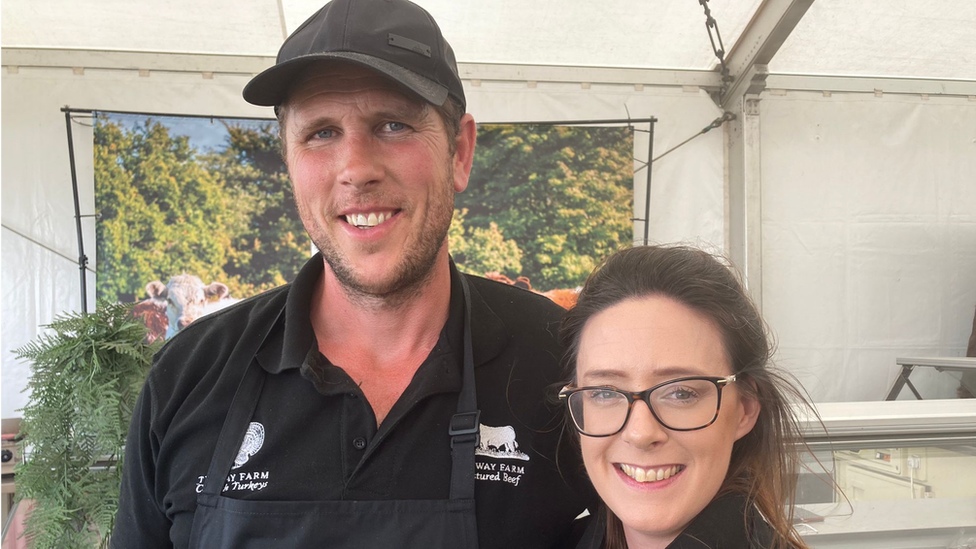
- Published10 September 2019
